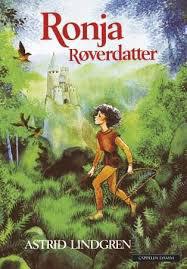Sind literarische Werke eine Visitenkarte der Nation? / Are literary works the nation’s flagship?
Barbara Marten - 22.09.2019 @ 17:25
Are literary works the nation’s flagship?
by Evelina Svensson, VSK Växjö/Sweden
A literary work is written by one person, or in certain cases more, and is the work of just that person. The author may have had inspiration from other people or things around them, but it is still their perception of the world. A book is something that is representative of how just this one person thinks, and sees their surroundings, and not how a whole nation sees the world they live in.
A lot of people probably take pride in works written by authors from their nation because they can feel a connection to the work and the author. This connection is probably mainly because of nationality, language, and maybe because of their life views.
I believe that you should be able to be proud of literary works written by authors from the same country as you. You can take pride in it but it is only the author who has written the work, and you are the one who enjoys reading it. A country has more cultural expressions other than books, for example theatre, films, art and more. All of these are in a way representative of the nation and it is therefore easy to have several different things as flagships.
You could also discuss if there are different genres or types of books that are praised more than others by a nation.  Some genres are valued higher and are seen as better than others, for example, historical literature and biographies are valued higher than children's literature is. Interestingly, some of the more famous Swedish literary works are children’s literature, for example Pippi Longstocking or Ronia, the robber’s daughter by Astrid Lindgren but that could be a bit of an exception. It is also common that literature in general is valued higher than for example films and tv series, and it may therefore be the first choice of representation.
Some genres are valued higher and are seen as better than others, for example, historical literature and biographies are valued higher than children's literature is. Interestingly, some of the more famous Swedish literary works are children’s literature, for example Pippi Longstocking or Ronia, the robber’s daughter by Astrid Lindgren but that could be a bit of an exception. It is also common that literature in general is valued higher than for example films and tv series, and it may therefore be the first choice of representation.
Photo: Evelina Svensson
A country can take pride in literary works, but there are also a lot of other things, for example films, inventions, and so on. I believe that literary works can be the nation’s pride, but alongside other things as well.
Anders Vannestål - 17.11.2019 @ 17:14
Dear Evelina,
I really liked your idea about a book being the nation's flagship. As many people know, Germany is very famous for its literature and above all writers and poets. For instance, many of these works are used to represent Germany and also to carry the country's history.
But most importantly is what you feel when you read the book and not what people tell you to. So when I was a child, I really enjoyed reading books by German authors, such as Cornelia Funke or Ottfried Preußler. From my point of view, these authors also contribute to a nation's representation, because children are also considered.
Contrary, one could say that movies and music are also important components, when thinking about a country's representation. Thus, it is not only Goethe that is relevant.
Best wishes,
Catarina
Catarina Becker - 03.12.2019 @ 15:56
Liebe Evelina!
Ich habe deinen Artikel gelesen und ich bin mit vielen Aspekten einverstanden, zum Beispiel, wenn die Dichter, die über ihre eigenen Gedanken schreiben, denken nicht unbedingt daran, was der Leser meint. Ich glaube doch, dass es leicht ist, uns mit den Dichtern zu identifizieren, weil sie die Gefühle meistens gründlich zusammenfassen.
Ich bin der Meinung, dass früher die Kontakte zwischen den Lesern und den geschriebenen Gedichten viel stärker waren, weil früher die Menschen über keine Fremdsprachenkenntnisse verfügten. Die Durchschnittsmenschen konnten meistens nur eine Sprache sprechen, nämlich ihre Muttersprache. Meiner Meinung nach hat meine Generation keine solchen Schranken mehr, und wir können uns mit den fremdsprachigen Gedichten auch identifizieren. Für mich zählt, was das Gedicht zu sagen hat und nicht in welcher Sprache es geschrieben wurde.
Mit freundlichen Grüßen
Dalma
Dalma Kovács - 19.12.2019 @ 19:02
Dear Evelina,
Thank you for your article. I really enjoyed reading it.
I do believe that literature can often be identified with a country, because language influences our thoughts, believes and even our orientation. While people in German speaking countries think of the sun as feminine, in Spain it is associated with masculinity. Knowing where a piece of writing is from, often changes the meaning. Also where you live, effects your feelings while reading. That’s why in my opinion it is always interesting to know where the author is from. Culture can be captured by texts and if your read carefully you get a different point of view, due knowing where the book has been written.
All the best.
Annalena
Annalena Rieser - 13.01.2020 @ 17:20